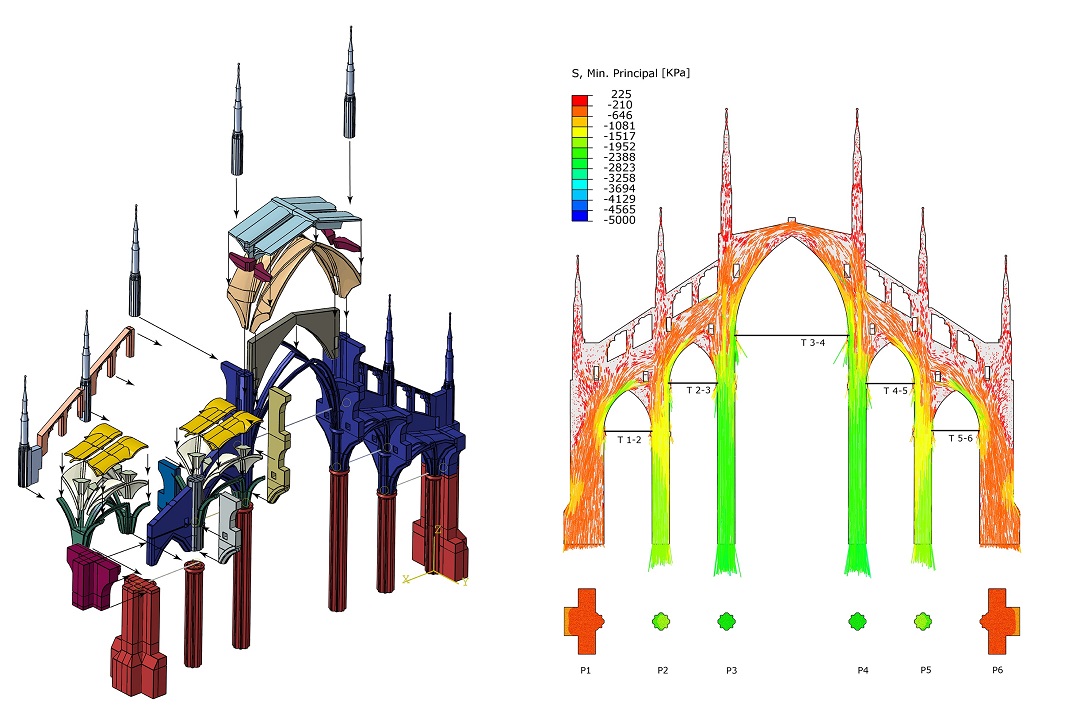Design of new works and Structural Rehabilitation of existing works
The approach to existing structures, in particular to Architectural Heritage, requires the deepest possible knowledge of their geometry, the historical-constructive evolution, the stratigraphic composition of the structural elements, the state and performance of the materials and their compatibility with modern materials for conservation purposes. The research group deals with structural survey (identification and quantification of disruptions, geometry variations and state of degradation), development and calibration of non-destructive and/or moderately destructive investigation techniques (radar, sonic, ultrasonic, tomography, thermography, flat jacks, core drilling, endoscopy), geophysical investigations for archaeology), tests of mechanical, chemical and physical characterization of materials, also in relation to exposure to aggressive environments, verification of the effectiveness of surface treatments, load tests on structures, testing of component materials for the repair and rehabilitation of structures.
Other areas of interest of the group are the techniques and methods for both short and long term monitoring, the approach and strategies of monitoring and the management of data obtained from surveys.

